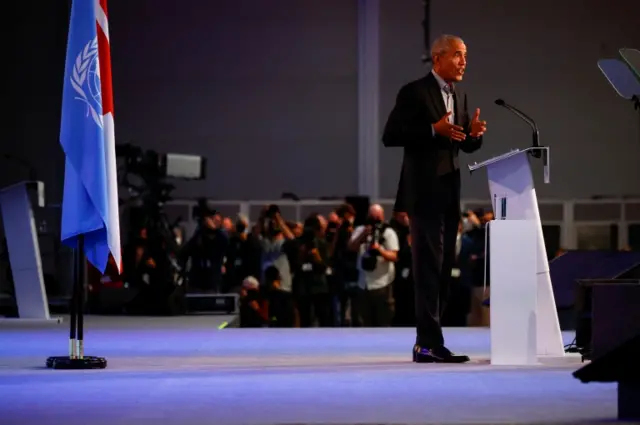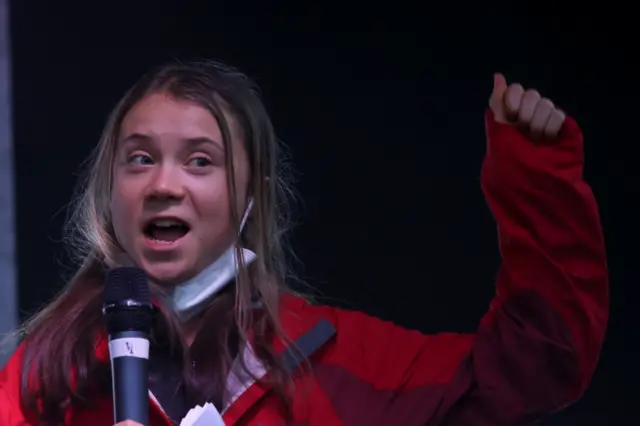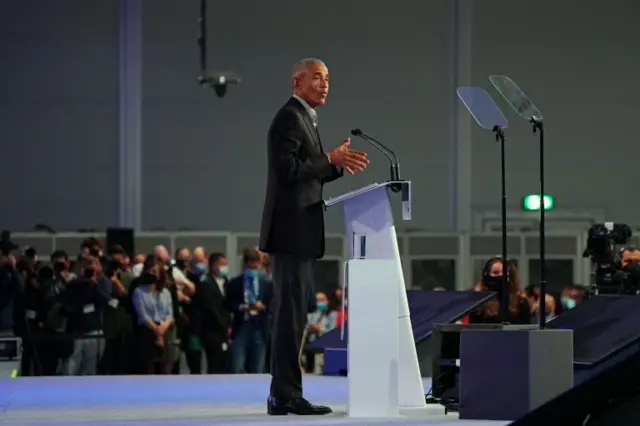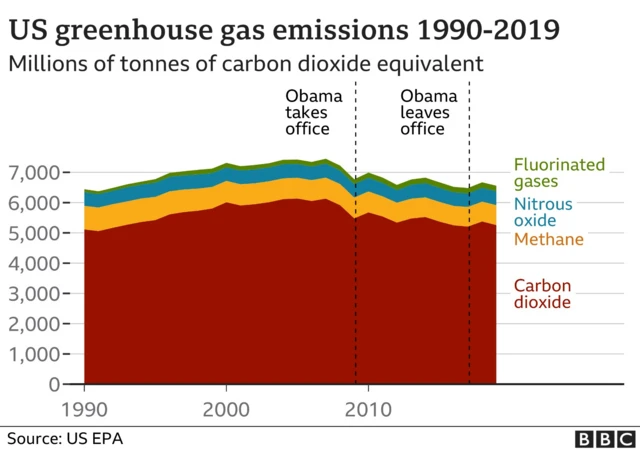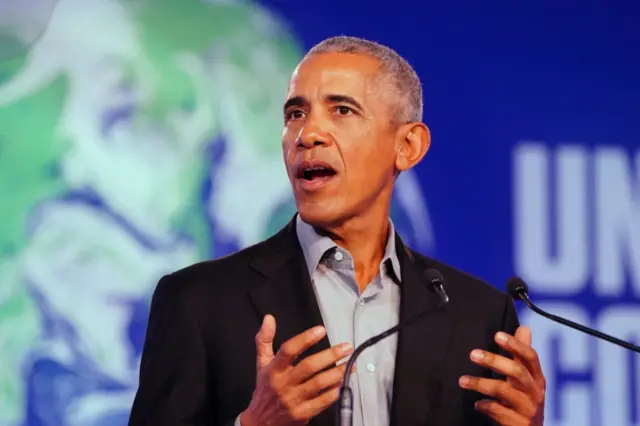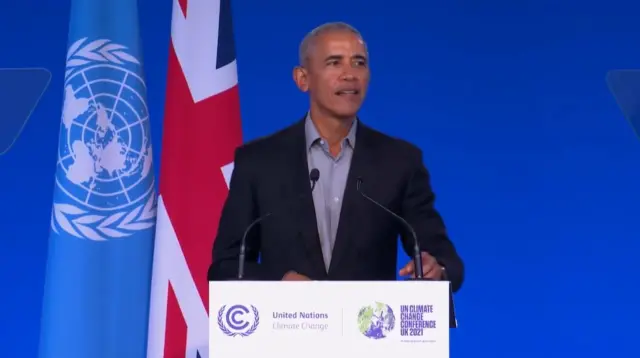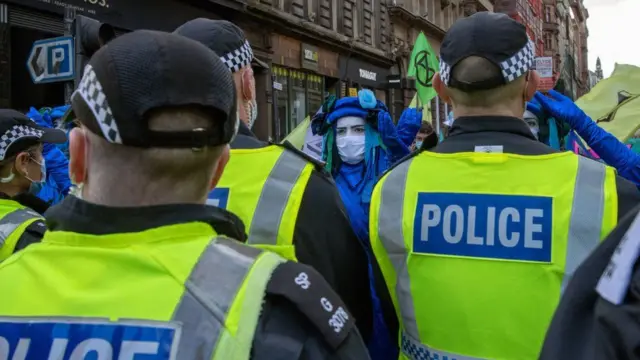'Developing countries want something to show from COP26'published at 15:15 GMT 8 November 2021
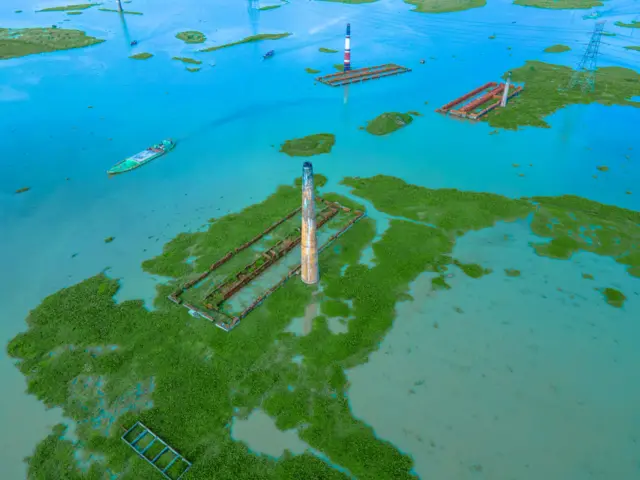 Image source, Getty Images
Image source, Getty ImagesFactories under water in Bangladesh after severe flooding
We've been concentrating on the speech from Barack Obama for the past hour but, away from the former US president, meetings on today's theme continue. It's "Adaptation, Loss and Damage", a confusing term that boils down to how countries will adapt to climate change and who will pay for it.
It's a very sensitive topic because developing countries on the climate frontline - going underwater or facing extreme heat - have been screaming for help for years.
That's where "climate finance" comes in - money that poorer countries can access to pay for adapting to the damage and the loss caused by climate change. (Like the billions and even trillions announced last week).
Experts from developing countries spoke at lunchtime about what still needs to happen in Glasgow:
Quote MessageDeveloping countries need to be able to access money - it's not flowing directly from COP to people who need it on the ground. And it's mostly given in commercial loans, which pushes poorer countries further into debt. Countries need money that supports them addressing climate change - through grants or loans on more favourable terms."
Maria Laura Rojas, Director of NGO Transforma, based in Colombia
Quote MessageCOP26 needs to agree on a clear goal for adaptation. Countries that are most vulnerable to climate change need something to show when they leave the summit."
Mohamed Adow, Director of NGO Power Shift Africa, based in Kenya
